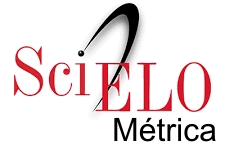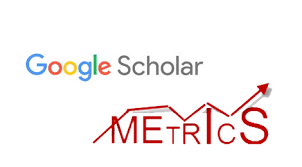Preparación para la escuela: análisis a través de la Cartografía Conceptual
Palabras clave:
Educación de la infancia temprana, preparación para la escuela, cartografía conceptualResumen
El presente estudio analiza el concepto de preparación para la escuela de acuerdo con los ejes de la metodología de la cartografía conceptual. Para este análisis se tomaron en cuenta documentos seminales y artículos sobre nuevas investigaciones en torno a las habilidades de preparación para la escuela, con especial énfasis en aquellos que abordan las diferentes perspectivas de los agentes educativos, incluyendo padres y educadores en comunidades vulnerables. El trabajo presenta un análisis histórico y nocional del concepto y propone una nueva visión de la preparación para la escuela desde la socioformación, que pretende ser un aporte para tener un panorama más claro de qué significa para un niño o niña estar preparado para su ingreso a la escuela. El estudio destaca la vinculación de la preparación para la escuela con el desarrollo social sostenible y presenta ejemplos de programas de preparación para la escuela basados en la investigación y la evidencia.
Descargas
Referencias
Akaba, S., Peters, L. E., Liang, E., & Graves, S. B. (2020). That’s the whole idea of college readiness: A critical examination of universal Pre-K teachers’ understandings around kindergarten readiness. Teaching and Teacher Education, 96, 103172. https://doi.org/10.1016/j.tate.2020.103172
Ansari, A., & Crosnoe, R. (2015). Immigration and the interplay of parenting, preschool enrollment, and young children’s academic skills. Journal of Family Psychology, 29(3), 382–393. https://doi.org/10.1037/fam0000087
Bakken, L., Brown, N., & Downing, B. (2017). Early Childhood Education: The Long-Term Benefits. Journal of Research in Childhood Education, 31(2), 255–269. https://doi.org/10.1080/02568543.2016.1273285
Black, M. M., Walker, S. P., Fernald, L. C. H., Andersen, C. T., DiGirolamo, A. M., Lu, C., McCoy, D. C., Fink, G., Shawar, Y. R., Shiffman, J., Devercelli, A. E., Wodon, Q. T., Vargas-Barón, E., & Grantham-McGregor, S. (2017). Early childhood development coming of age: science through the life course. The Lancet, 389(10064), 77–90. https://doi.org/10.1016/S0140-6736(16)31389-7
Bloch, M. N., & Kim, K. (2015). A Cultural History of “Readiness” in early childhood care and education: Are there still culturally relevant, ethical, and imaginative spaces for learning open for young children and their families? In Iorio J.M., Parnell W. (eds), Rethinking readiness in early childhood education: Critical cultural studies of childhood. (pp. 1–18). Palgrave Macmillan, New York. https://doi.org/10.1057/9781137485120_1
Brown, C. P., Barry, D. P., & Ku, D. H. (2020). How education stakeholders made sense of school readiness in and beyond kindergarten. Journal of Research in Childhood Education, 35(1), 1717688. https://doi.org/10.1080/02568543.2020.1717688
Brown, C. P., & Lan, Y. C. (2018). Understanding families’ conceptions of school readiness in the United States: A qualitative metasynthesis. International Journal of Early Years Education, 26(4), 403–421. https://doi.org/10.1080/09669760.2018.1454302
Carlton, M. P., & Winsler, A. (1999). School psychology review school readiness: The need for a paradigm shift. School Psychology Review, 28(3), 338–352. https://doi.org/10.1080/02796015.1999.12085969
Duncan, G. J., Dowsett, C. J., Claessens, A., Magnuson, K., Huston, A. C., Klebanov, P., Pagani, L. S., Feinstein, L., Engel, M., Brooks-Gunn, J., Sexton, H., Duckworth, K., & Japel, C. (2007). School readiness and later achievement. Developmental Psychology, 43(6), 1428–1446. https://doi.org/10.1037/0012-1649.43.6.1428
Etimologías. (s.f.). Escuela. http://etimologias.dechile.net/?escuela
Eun, B. (2019). The zone of proximal development as an overarching concept: A framework for synthesizing Vygotsky’s theories. Educational Philosophy and Theory, 51(1), 18–30. https://doi.org/10.1080/00131857.2017.1421941
García, J. L., Heckman, J. J., Leaf, D. E., & Prados, M. J. (2020). Quantifying the life-cycle benefits of an influential early-childhood program. Journal of Political Economy, 128(7), 2502–2541. https://doi.org/10.1086/705718
Huber, J., Caine, V., Murphy, M. S., Lessard, S., Menon, J., & Clandinin, D. J. (2018). A narrative inquiry into the experiences of urban indigenous families as they ready their children for, and during, kindergarten. Journal of Childhood Studies, 43(2), 46–57. https://doi.org/10.18357/jcs.v43i2.18577
Lara-Cinisomo, S., Pebley, A. R., Vaiana, M. E., & Maggio, E. (2018). Are L.A.’s children ready for school? In Are L.A.’s children ready for school? RAND Corporation. https://doi.org/10.7249/mg145
Mashburn, A. J., LoCasale-Crouch, J., & Pears, K. C. (2018). Kindergarten transition and readiness: Promoting cognitive, social-emotional, and self-regulatory development. in kindergarten transition and readiness. Springer International Publishing. https://doi.org/10.1007/978-3-319-90200-5
McLeod, N., & Anderson, B. (2019). Towards an understanding of ‘school’ readiness: collective interpretations and priorities. Educational Action Research, 28(5), 1654902. https://doi.org/10.1080/09650792.2019.1654902
Miller, M. M., & Kehl, L. A. M. (2019). Comparing parents’ and teachers’ rank-ordered importance of early school readiness characteristics. Early Childhood Education Journal, 47(4), 445–453. https://doi.org/10.1007/s10643-019-00938-4
O’Brien, B. A., Ng, S. C., & Arshad, N. A. (2020). The structure of home literacy environment and its relation to emergent English literacy skills in the multilingual context of Singapore. Early Childhood Research Quarterly, 53, 441–452. https://doi.org/10.1016/j.ecresq.2020.05.014
Padilla, C. M., & Ryan, R. M. (2020). School readiness among children of Hispanic immigrants and their peers: The role of parental cognitive stimulation and early care and education. Early Childhood Research Quarterly, 52, 154–168. https://doi.org/10.1016/J.ECRESQ.2018.04.008
Pivnick, L. K. (2019). Nonparental caregivers, parents, and early academic achievement among children from latino/a immigrant households. Sociological Perspectives, 62(6), 884–906. https://doi.org/10.1177/0731121419851093
Raikes, A., Yoshikawa, H., Britto, P. R., & Iruka, I. (2017). Children, youth and developmental science in the 2015-2030 global sustainable development goals. Social Policy Report, 30(3), 1–23. https://doi.org/10.1002/j.2379-3988.2017.tb00088.x
Raver, C. C. (2004). Placing emotional self-regulation in sociocultural and socioeconomic contexts. Child Development, 75(2), 346–353. https://doi.org/10.1111/j.1467-8624.2004.00676.x
Reynolds, A. J., Magnuson, K. A., & Ou, S. R. (2010). Preschool-to-third grade programs and practices: A review of research. Children and Youth Services Review, 32(8), 1121–1131. https://doi.org/10.1016/j.childyouth.2009.10.017
Saluja, G., Scott-Little, C., & Clifford, R. M. (2000). Readiness for school: A survey of state policies and definitions. Early Childhood Research and Practice, 2(2). https://ecrp.illinois.edu/v2n2/saluja.html
Sheldrick, R. C., Schlichting, L. E., Berger, B., Clyne, A., Ni, P., Perrin, E. C., & Vivier, P. M. (2019). Establishing new norms for developmental milestones. Pediatrics, 144(6). https://doi.org/10.1542/peds.2019-0374
Shonkoff, J. P., & Fisher, P. A. (2013). Rethinking evidence-based practice and two-generation programs to create the future of early childhood policy. Development and Psychopathology, 25(4), 1635-1653. https://doi.org/10.1017/S0954579413000813
Simpson, D., Lumsden, E., & McDowall Clark, R. (2015). Neoliberalism, global poverty policy and early childhood education and care: a critique of local uptake in England. Early Years, 35(1), 96-109. https://doi.org/10.1080/09575146.2014.969199
Snow, K. L. (2006). Measuring school readiness: Conceptual and practical considerations. Early Education and Development, 17(1), 7–41. https://doi.org/10.1207/s15566935eed1701_2
The Children’s Reading Foundation. (s.f.). About the program - reading foundation. https://www.readingfoundation.org/readyforkindergarten/about-the-program
Tobón, S. (2013). Formación integral y competencias. Pensamiento Complejo, Currículo, Didáctica y Evaluación, 4(2), 393. https://www.redalyc.org/pdf/4575/457545095007.pdf
Tobón, S. (2017). Ejes esenciales de la sociedad del conocimiento y la socioformación. In Kresearch (Vol. 369, Issue 1). Kresearch. https://doi.org/dx.doi.org/10.24944
Tobón, S., Gonzalez, L., Salvador Nambo, J., & Vazquez Antonio, J. M. (2015). La socioformación: Un estudio conceptual. Paradígma, 36(1), 7–29. http://ve.scielo.org/scielo.php?script=sci_arttext&pid=S1011-22512015000100002
U.S. Department of Health & Human Services. Administration for Children & Families. (2020). Head Start Programs. https://eclkc.ohs.acf.hhs.gov/programs/article/head-start-programs
UNICEF. (2012). School readiness. A conceptual framework. United Nations Children’s Fund: New York. https://sites.unicef.org/earlychildhood/files/Child2Child_ConceptualFramework_FINAL(1).pdf
United Nations. (2020). Educación – Desarrollo Sostenible. https://www.un.org/sustainabledevelopment/es/education/
Varshney, N., Lee, S., Temple, J. A., & Reynolds, A. J. (2020). Does early childhood education enhance parental school involvement in second grade?: Evidence from midwest child-parent center program. Children and Youth Services Review, 117, 105317. https://doi.org/10.1016/j.childyouth.2020.105317
Vygotski, L. S. (1967). El desarrollo de los procesos psicológicos superiores. Crítica.
Wallace, L. J. J. (1967). A history of compulsory school attendance and visiting teacher services in Louisiana. In LSU Historical Dissertations and Theses.
Williams, P. G., Lerner, M. A., AAP Council on Early Childhood, & AAP Council on School Health. (2019). School readiness. Pediatrics, 144(2), 20191766. https://doi.org/10.1542/peds.2019-1766
Winter, S. M., & Kelley, M. F. (2008). Forty years of school readiness research: What have we learned? Childhood Education, 84(5), 260–266. https://doi.org/10.1080/00094056.2008.10523022
Yoshikawa, H., & Kabay, S. (2014). The evidence base on early childhood care and education in global contexts. https://unesdoc.unesco.org/ark:/48223/pf0000232456











